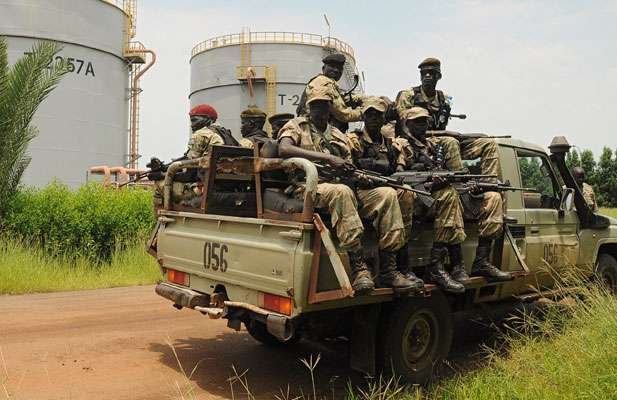The World Food Programme (WFP) has estimated that US$13 million to US$14 million worth of food products destined to people in need in Sudan have been looted since fighting broke out last month.
Country Director, Eddie Rowe, described pillaging in the country as rampant and that some reports of WFP’s supplies being stolen were still being verified.
“We’ve estimated that close to 17,000 metric tons have been looted, some in our warehouses, while others on wheels. This would translate to about US$13 or US$14 million – just the cost of the food. Almost every day we are receiving reports of additional looting.”
Eddie Rowe
Rowe’s comments come a day after U.N. aid chief Martin Griffiths appealed to the warring sides in Sudan to ensure safe passage of humanitarian aid and staff.
The conflict In Sudan has forced about 100,000 people to flee to neighbouring countries, according to the U.N., and has hindered aid deliveries in a country where about one-third of people already relied on humanitarian assistance.
Rowe indicated that the WFP needed to purchase more supplies urgently for Sudan.
“We know that if we do not procure commodities now, we are going to run out of stock in the next two to three months. We’ve already started our engagement with our donors to see how quickly we can procure and also deliver in these locations where we do have windows of opportunity and where it’s considered relatively safe for us to provide assistance.”
Eddie Rowe
The Sudan Conflict
Intense clashes between Sudan’s military and the country’s main paramilitary force have killed hundreds of people and sent thousands fleeing for safety, as a burgeoning civil war threatens to destabilise the wider region.
The clashes erupted In the middle of April amid an apparent power struggle between the two main factions of the military regime.

The Sudanese armed forces are broadly loyal to Gen Abdel Fattah al-Burhan, the country’s de facto ruler, while the paramilitaries of the Rapid Support Forces (RSF), a collection of militia, follow the former warlord Gen Mohamed Hamdan Dagalo, known as Hemedti.
The power struggle has Its roots in the years before a 2019 uprising that ousted the dictatorial ruler Omar al-Bashir, who built up formidable security forces that he deliberately set against one another.
When an effort to transition to a democratic civilian-led government faltered after Bashir’s fall, an eventual showdown appeared inevitable, with diplomats in Khartoum warning in early 2022 that they feared such an outbreak of violence. In the weeks before clashes broke out tensions had risen further.






















